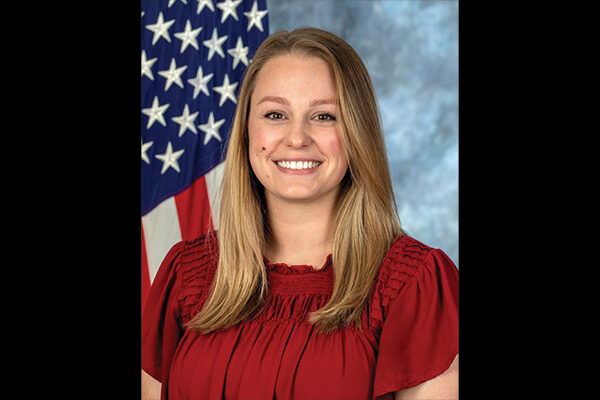Emily Sheridan | U.S. Army Operational Test Command | Feb. 15, 2024
Personal Financial Readiness (or being financially responsible) is one of those not-so-fun topics we all dance around until suddenly it’s a problem. A recent statistic from the Wall Street Journal stated 61 percent of Americans are living paycheck to paycheck – a statistic the Army community is unfortunately not immune to. Between inflation, high interest rates, and the current cost of living, being economically educated is more important than ever. With these tips you can start to live a healthier, fiscally accountable life:
If you expect you will be needing assistance with making ends meet, have a one-on-one discussion with your Company Commander (CO) or your Unit Financial Readiness Representative regarding finances early in advance. The CO can assist with your budgeting and approving quick assist Army Emergency Relief (AER) loans. You may also be eligible for food stamps. If not, there are plenty of local food banks willing to assist.
Budgeting: An unfortunate necessary evil. Military One Source has lots of resources to aid in achieving your financial goals. Ensure that you’re including a budget to save for known, occasional expenses (vet visits, school supplies, new tires on the vehicle, etc.) as well as expenses you may not know you will need to save for (car maintenance, house closing costs, etc.).
Reduce debt: Pay off debt as soon as possible and try to avoid it when able. As an active-duty service member you are protected under the Servicemembers Civil Relief Act (SCRA) and can have your interest rate reduced to a maximum of 6% per year if the loan was taken prior to military service. The Military Lending Act (MLA) states creditors cannot charge you a penalty if you pay back part (or all) of a loan early. Some debt, like a car loan or a mortgage are not necessarily bad debt if you’re paying it off every month (and the interest rate isn’t too high). In fact, those kinds of debt can assist your credit score. The MLA limits interest rates to no more than 36%. If you are in credit card debt do not let a company charge you at a higher rate!
Shop around: Being a loyal customer is a thing of the past. Get quotes for a new car insurance every few months/once a year. A different company may be offering a lower rate for the same coverage. Same goes for internet, cell phones, and other contract services.
Emergency fund: Always try to maintain at least three to six months of expenses for an emergency. You never know when your car’s starter will break, or your water heater stops working (if this sounds oddly specific that’s because both happened to me within the last six months!). No one is immune from emergency situations, and having emergency savings will surely reduce your stress when they arise.
High-Yield Savings Accounts: Utilize a High-Yield Savings Account for your savings that you need access to. This is a great way to earn money and try to keep up with inflation while still having access to your emergency money.
Certificate Deposit (CD): A safer option for investing. You agree to give a certain dollar amount to the financial institution for a certain length of time with the promise that you will receive a certain percentage in return. Only for use when you have the extra money to spare, and you will not need access to for that agreed upon length of time. Do not put emergency money in here!
Thrift Savings Plan (TSP): Assign 5 percent of your income to the TSP to maximize what the government matches. It is managed at a very low cost to you and will aid in your retirement planning. You can pull money out of TSP as early as age 55.
Roth IRAs: Speaking of retirement, try to maximize your Roth IRA contribution at $7,000 a year. Because the money is taxed prior to entering your IRA account the money will not be taxed when you pull it out at the age of 59 ½.
Meal prep: cooking one time on the weekend for the entire week aids in not over-buying food at the store and is a time-saver. Plus, when you have a meal already prepared, the odds of you eating out are less (if you can stand the same meal every day).
Live within your means – or better yet live BELOW your means: I know purchasing a Toyota Corolla isn’t nearly as fun as buying that Dodge Charger, however it’s economical and serves the same purpose of getting you from A to B. Save and invest that money now and you may just be able to afford that Lamborghini in the future. Take that, Dodge!
Credit Cards: ONLY use if you can pay it off every month! Credit cards are a great tool with several benefits, however, never buy more than you can afford. If you spend wisely, these will help with your credit score and that can help you buy a car or house in the future.
If you put in the proper, preparatory work you’ll be well-postured to mitigate future financial problems. The hard-earned reward will come when you and your family are equipped for life’s unexpected events and you are prepared for a long, fulfilling retirement. Best of luck in your financial readiness journey!
Editor’s note: Ms. Emily Sheridan is an Army Civilian Supervisory Management Analyst who oversees USAOTC’s Manpower and Payroll Division. She manages workload tracking and payroll processing, assists in shaping force development, and aids fellow leaders to understand the impact of the Army’s ever-diminishing resource constrained environment on the unit’s available manpower funding and authorizations.

